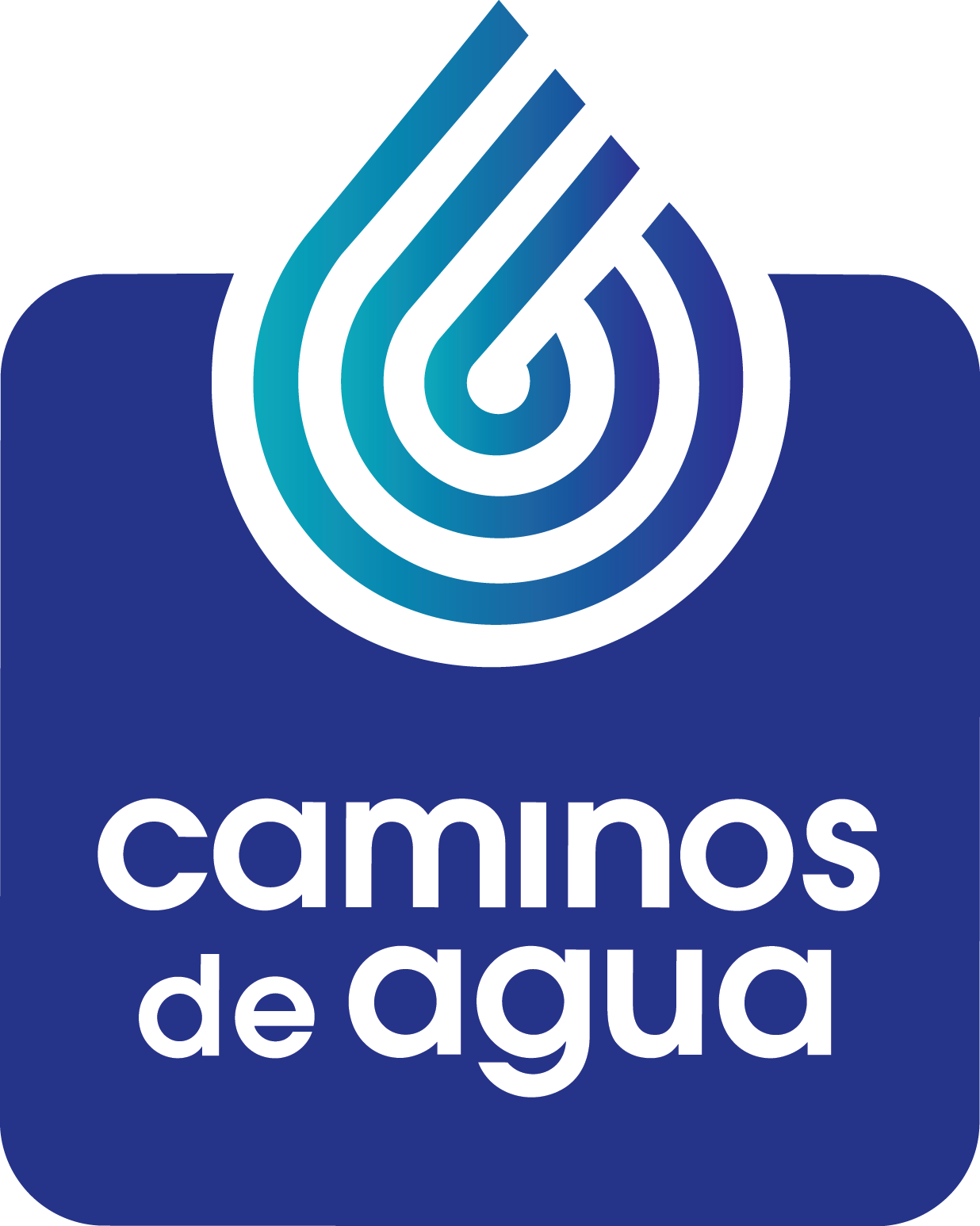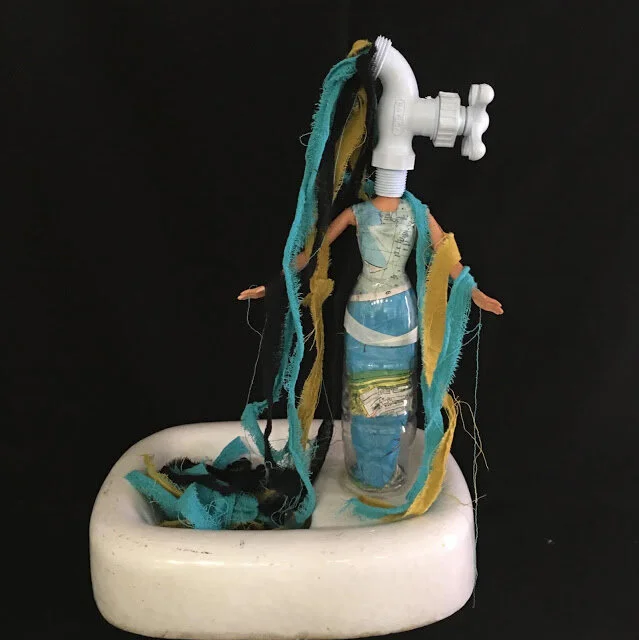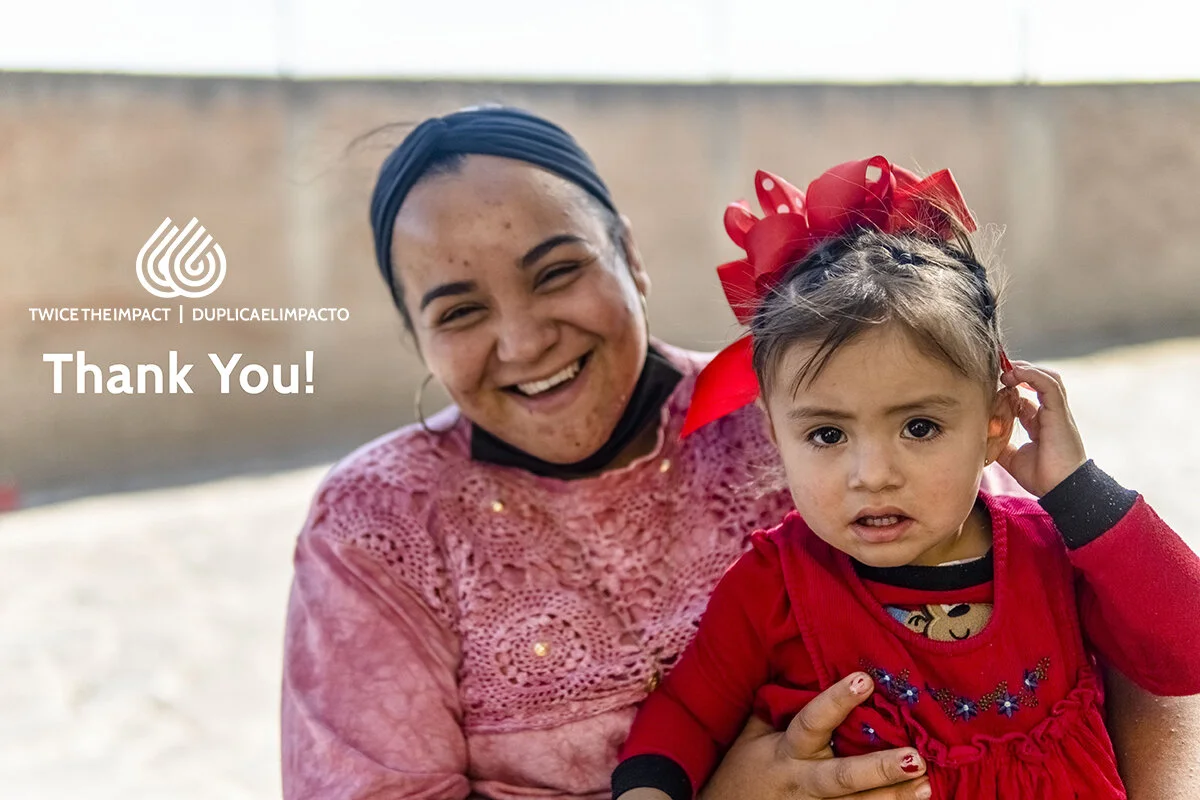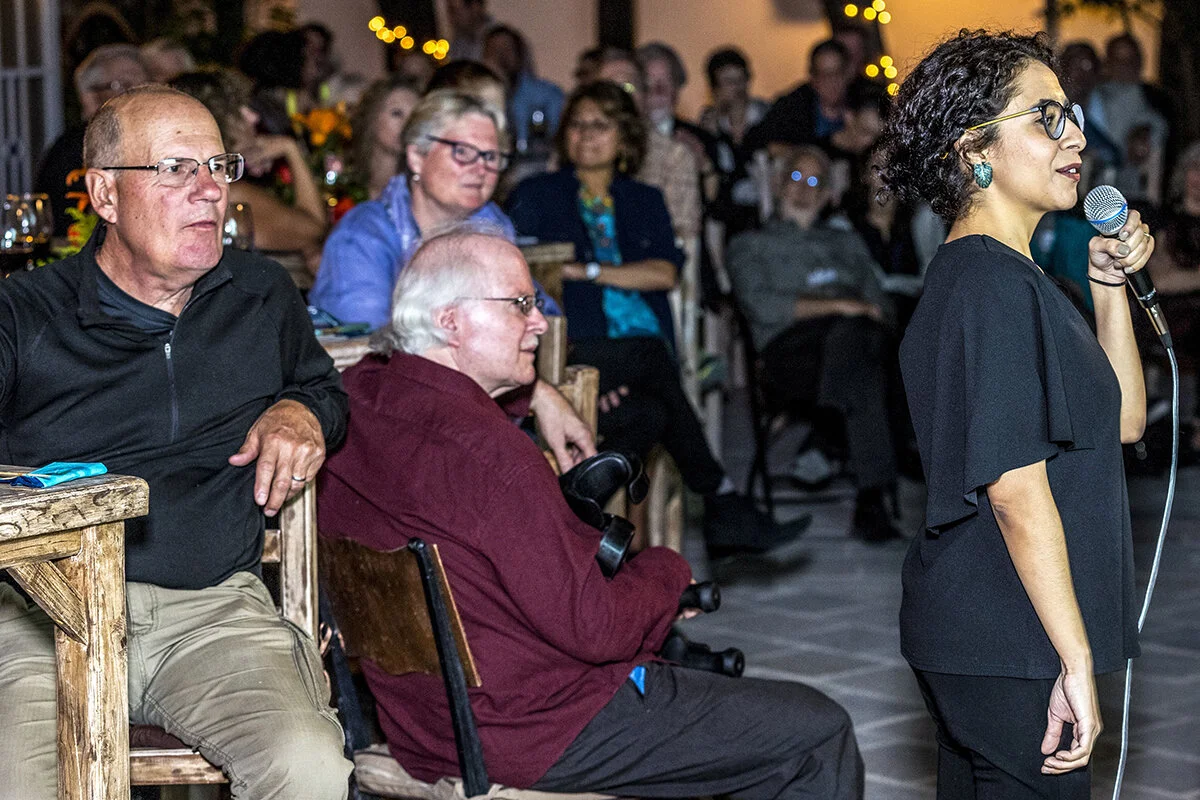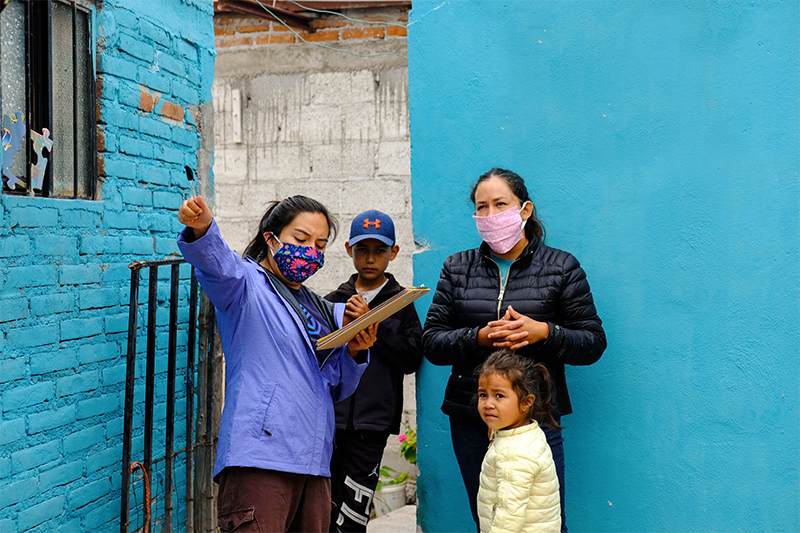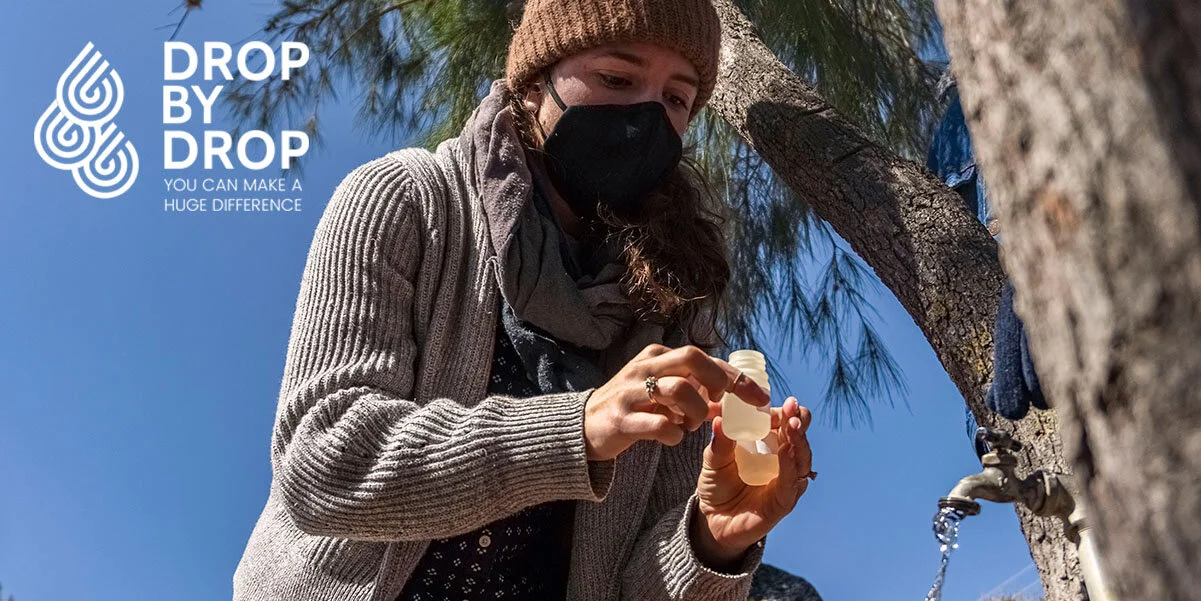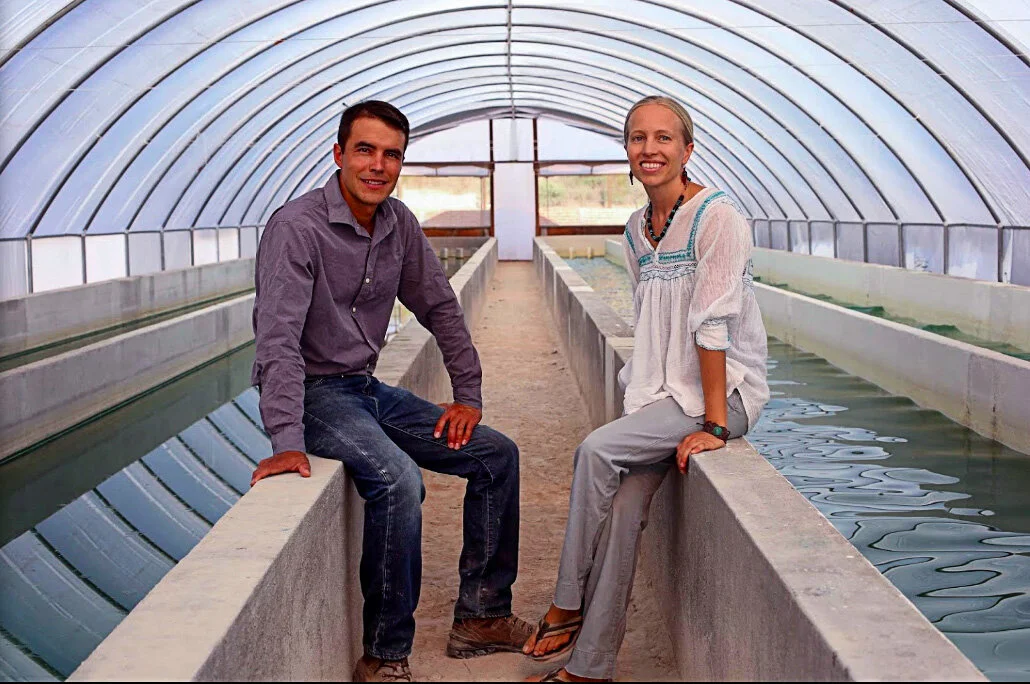This mixed media sculpture stands as a testament to the state of our waters, in so many parts of the world. I created it several years ago, from a porcelain sink reminiscent of drinking fountains in elementary schools. It's something I would have been drinking out of as a child in the 1950s, before pollution from factories and farms changed the ponds, lakes, streams, rivers, and oceans as we knew them.
Read MoreThank You! We couldn’t have done it without you.
Read MoreWe’re happy to introduce La Gota (“The Drop”), the first in a series of monthly bulletins designed to give you behind-the-scenes insight on Caminos de Aguas’ projects and activities.
We’d like to introduce you to Chip & Lucy Swab and Bob & Peggy Krist. They are the two families behind our Match Campaign this month, and we’d like you to know more about why they do it.
Read MoreCritical to Caminos de Agua’s mission is providing communities at risk with access to clean water. Educating communities about the health risks of contaminated water, what they can do to mitigate those risks, and how to take action, is paramount to that goal and as important as the physical solutions themselves. In this email we’d like to share with you why community education is so important and how your donation will make such an important difference.
Read MoreWhen the pandemic hit last year, we estimated that we were a few weeks behind the US and other parts of the world. However, it turned out that the virus didn’t really make a major impact – especially in the more rural communities where Caminos de Agua works – until right around the beginning of 2021. In San Miguel de Allende, and in the 2,500 communities throughout the broader region, we are witnessing a dramatic increase in the number of cases as I write this text. The ironic reality is that it has become more difficult for us to work under the pandemic at the very time when water solutions are more urgently needed than ever before.
Read MoreThe intention of this text is to tell you about the collaborative work we have undertaken with the Water Learning Community (WLC) for the Water and Health project, which is the result of the collaboration between Caminos de Agua and INANA a.c.
Read MoreI want to sincerely thank all of you who have already given to us so generously during this incredibly difficult year. It is what has kept us afloat and allowed us to continue delivering much needed clean water and grassroots education where needed the most. I honestly don’t have the words to thank you all for being such an intimate and important part of our mission.
Read MoreFor virtually all of us, washing our hands with soap and clean water, one of the main defenses against the coronavirus, is a critical action we don’t think twice about. But for tens of thousands who rely upon the Alta Rio Laja aquifer in the highlands of Guanajuato, Mexico for their drinking water, that straightforward act isn’t so simple. That’s because their water supply has completely dried up, and for many more, it’s common to only receive water for a few hours a week.
Read MoreFor nearly 10 years, at Caminos de Agua, we have been working towards our mission to improve human health and community well-being through adequate and affordable access to clean water. Along with water quality monitoring, education programs, and installations of rainwater harvesting and other systems, we have also been developing technical solutions to these incredibly complex water quality problems that face our region.
In fact, at this moment, literally as we write this, our most important technological development to date is coming to fruition.
Imagine turning on your water faucet to find that nothing is coming out. Your water supply suddenly dried up, and there just isn’t a drop more. Or imagine turning on your faucet and the water comes out, seemingly just as it always has. It tastes and looks the same, but you later find out that it is laden with arsenic and fluoride, many times above World Health Organization recommendations for human consumption.
The upper area of the watershed where municipalities such as San Luis de la Paz, San Diego de la Unión and Dolores Hidalgo are located is one of the regions most affected by groundwater contamination and scarcity, leaving millions of people without access to clean and safe drinking water. This lack of water is largely due to the growing agroindustry. By far our largest and most important project to date, the “Agua y Salud” (Water & Health) project, will allow us to build 350+ large-scale rainwater harvesting systems, 30 composting toilets, and install over 650 ceramic water filters in over 30 communities, across four municipalities, in our watershed over the next few years.
Caminos de Agua has focused its projects on generating more impact in these areas and bringing clean and safe water to more people at risk. We know that we cannot generate the necessary reach and impact alone, so for years we have worked in collaboration with local grassroots organizations, as well as built networks and coalitions at the regional and national levels.
After strong collaborative efforts with different key actors for over a year and a rigorous selection process, the Gonzalo Río Arronte Foundation approved the project “Water and Health” in October 2020. To date it is the most ambitious project that Caminos de Agua has developed.
By involving more actors, a sense of community is established. Together we become stronger.
Read MoreOver the past 5 years, Caminos de Agua Tech team has been working on two pilot systems that remove arsenic and fluoride from groundwater. This is the story of the first pilot, which the Tech team started developing in-house in order to provide clean and safe water at an affordable cost.
Read More